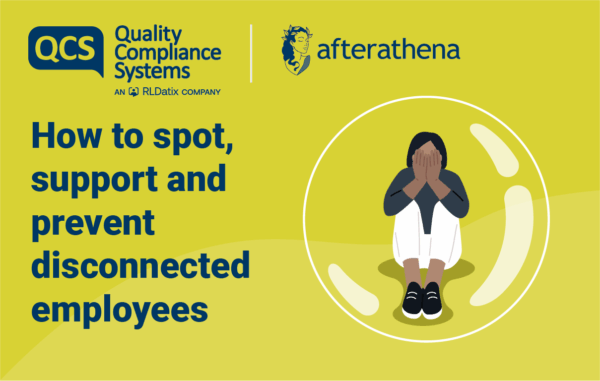As today’s workplace continues to evolve, employers are facing growing challenges in supporting their people, especially at a time when disconnection and burnout are at an alltime high. These challenges can take emotional, social, or mental forms, and may relate to individuals’ work, their teams, or the wider organisation.
These issues can quietly undermine productivity which directly impacts absence levels and can eventually contribute to turnover levels, if not addressed promptly. With the right awareness and tools in place, businesses can foster a supportive culture where their people feel seen, heard and valued.
Employees who are disconnected aren’t always loud or disruptive; they can be quiet, gradual in their separation and often hide behind a mask of competence. A disconnected employee may still meet deadlines or attend meetings, but they may no longer feel a sense of belonging, purpose, or enthusiasm for their role.
Disconnect can be triggered by many internal and external factors such as: a change to the employee’s personal circumstances such as health issues, financial stress or bereavement; unclear career progression or lack of job security; workplace conflict; feeling excluded from work-related activities or mental health challenges such as stress or burnout.
Therefore, it is advisable for employers to train their people managers to identify signs of disconnection early on. Examples of such signs may include:
- Withdrawal from team interactions: reduced participation in meetings, silence on messaging platforms, or a noticeable change in tone
- Drop in performance or productivity: missing deadlines, lower-quality work, or disengagement from set objectives, creating a lack of drive for success, whether this be personally or professionally
- Absenteeism or presenteeism: an increase in sick days, late arrivals, or appearing “checked out” whilst at work; they may physically be present but mentally they are elsewhere
- Mood or behavioural shifts: irritability, lack of motivation, or uncharacteristic behaviour
- A decline in wellbeing: raising complaints about stress, sleep issues, or general low mood
Managers shouldn’t make assumptions but rather use these signs as prompts for gentle, honest and open conversations.
Prevention starts with creating a culture of trust, psychological safety, and regular communication. Here are some practical initiatives that employers can implement:
- Frequent Check-Ins
Regular 1:1s between managers and team members provide space for honest dialogue. These meetings should go beyond task updates and invite discussion on wellbeing, workloads, and support needs.
- Mental Health and Wellbeing Resources
Ensure employees know what support is available, whether that’s Employee Assistance Programmes (EAPs), mental health first aiders, counselling services, or stress management workshops.
- Training for Line Managers
Equip managers with the skills to recognise signs of disengagement, hold supportive conversations, and take appropriate next steps. This may include understanding when they need to involve HR or occupational health support.
- Anonymous Feedback Channels
Anonymous surveys or feedback tools can help capture how employees are honestly feeling early on. Look for patterns of low morale, unclear expectations, or lack of recognition.
- Clear Communication
Keep employees informed about organisational changes and decisions. It is important to recognise that silence from senior leaders breeds uncertainty on the ground, therefore, regular and transparent updates from leadership build trust.
Ultimately, addressing disconnection is about treating employees as individuals, by listening, responding with empathy, and creating environments where everyone feels supported.
If you have any questions in relation to employee disconnection, burnout or wellbeing, please do not hesitate to contact a member of the AfterAthena team (part of the Napthens Group) who are able to offer 30 minutes of free advice to QCS members.
If you have any questions in relation to environmental proposals to help support employees take steps in relation to climate change, please do not hesitate to contact a member of the AfterAthena team (part of the Napthens Group) who are able to offer 30 minutes of free advice to QCS members.
Contact AfterAthena





